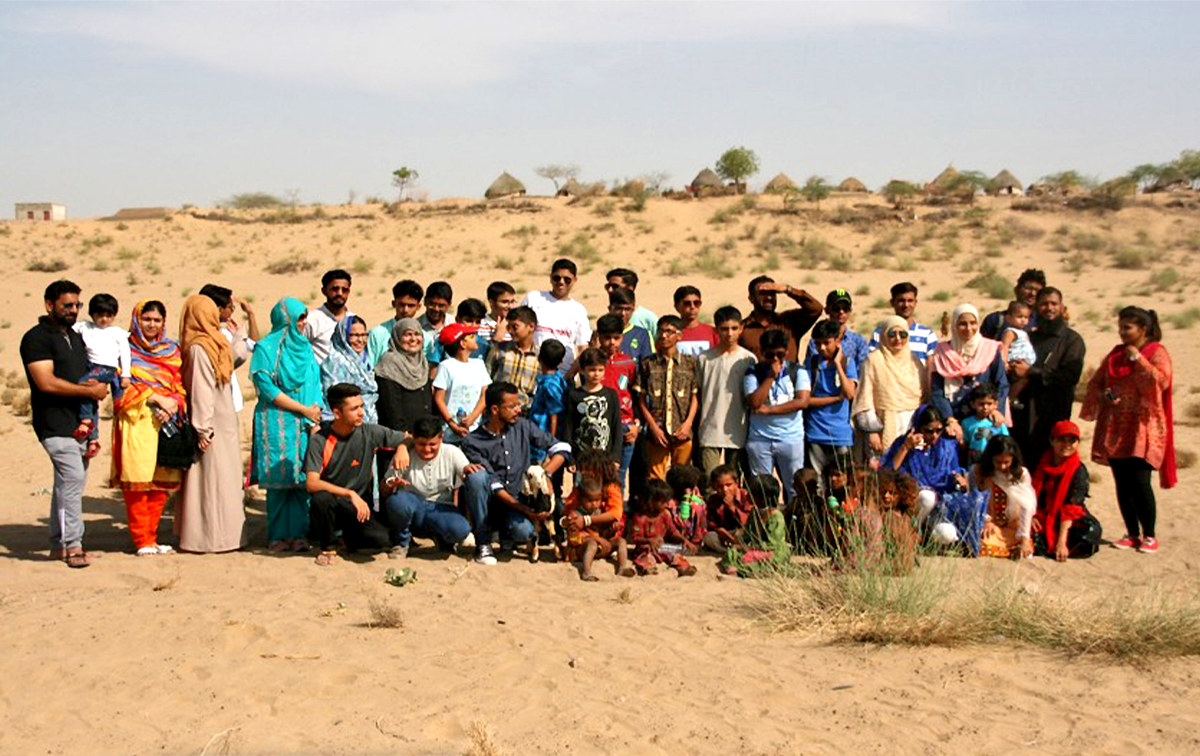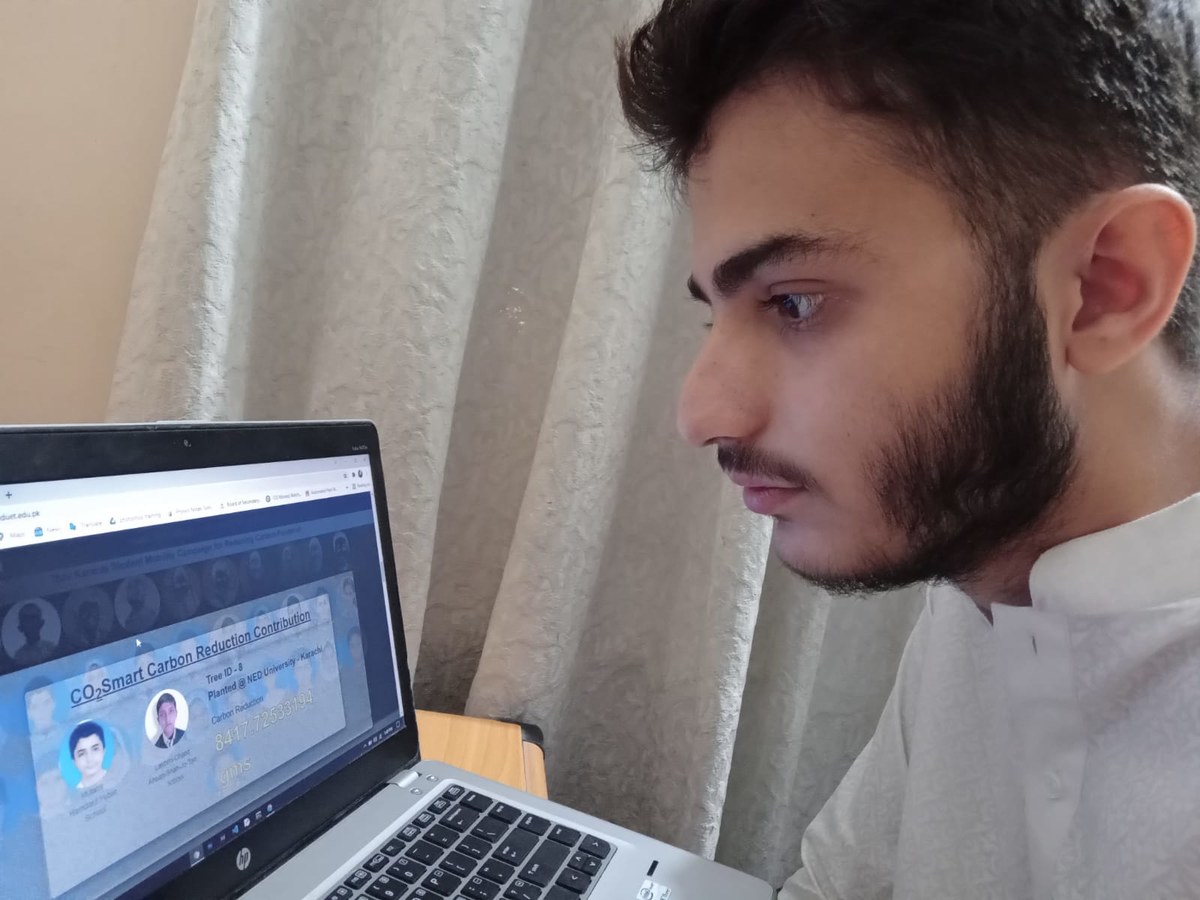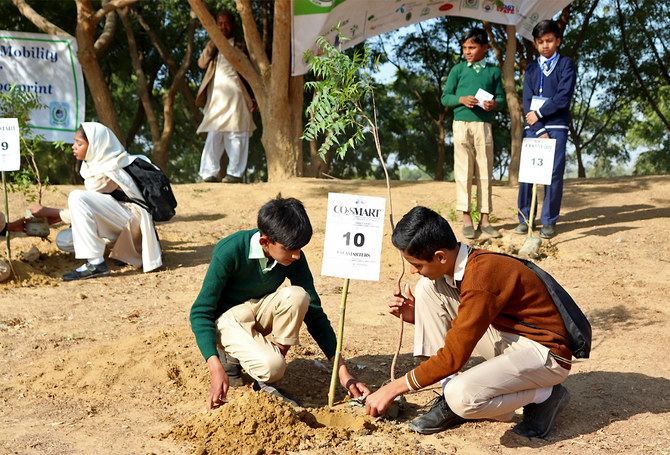KARACHI: Two years ago when Sameer Islam joined a tree-planting program at his school in Pakistan’s coastal megacity of Karachi, he didn’t know much about the role of plants in tackling climate change. But everything changed when he visited a nearby desert district as part of the Thar-Karachi Student Mobility Campaign for Reducing Carbon Footprint program.
The program was set up by the NED University of Engineering and Technology in April 2019 and established with a grant from the Higher Education Commission and the Sindh Engro Coal Mining Company (SECMC) to raise climate change awareness among schoolchildren.
Under the program, 35 students from grade five to 10 were selected to work in two regions of Sindh province — Karachi and the desert region of Tharparkar — that have been hit by global warming and seen deadly heatwaves and droughts in recent years.
During the campaign, the children visited the regions to plant trees and until today monitor them through the university’s website to see how the plantation contributes to reducing the global climate footprint.
As trees grow, they absorb carbon dioxide (CO2), a major greenhouse gas in the atmosphere. The trees planted during the NED program are geo-tagged, with their health, diameter and height regularly measured. All data is uploaded to the university’s website, where an algorithm estimates their CO2 absorption, allowing the kids to monitor the trees’ performance.
“I knew very little about the trees,” Islam, a seventh-grade student, told Arab News. “But when I visited Tharparkar for the plantation, I came to know about their importance.”

Students from Tharparkar and Karachi pose for a group photo in Tharparkar, Sindh province, Pakistan, in April 2019. (Photo courtesy: NED University)
For the exchange program, he planted a tree at Tharparkar’s Ansari Green Park, but his involvement did not stop there.
“I have also planted five trees in my neighborhood,” he said. “I personally take care of them.”
Hafiz Mutahir Ahmed, who is now a student at Aga Khan College in Karachi, continues to monitor the trees he planted in Tharparkar as a high school student.
“A tree reduces 8.47 kilograms of carbon and planting one tree is a great achievement,” he said. “Planting trees is the need of the time, especially for the areas like Karachi and Tharparkar where temperature is growing very fast.”

In this photo taken on November 7, 2021, Hafiz Mutahir Ahmed checks from his home in Karachi, Pakistan, the carbon dioxide absorption of the tree he planted during Thar-Karachi Student Mobility Campaign for Reducing Carbon Footprint in April 2019. (AN photo)
Nuzrah Jamal, now a high school student, says she has also been helping others understand the importance of vegetation for the planet.
“I feel very proud of myself when I login to the website and see my plant is contributing,” she said. “A single plant can make a difference.”
Dr. Saad Ahmed Qazi, dean of the Faculty of Electrical and Computer Engineering at the NED University, who was one of the program’s initiators, told Arab News the students enthusiastically monitored the status of their trees.
“It’s extremely important to connect each person with activities related to climate change mitigation, be it energy conservation, tree plantation or any other thing,” he said. “That is what creates an environmentally conscious and responsible soul.”


















